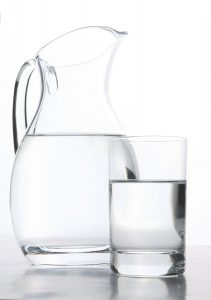Homecare Nassau County NY
 The elderly are prone to dehydration. One study showed that 27% of the residents of an LTC facility were admitted to the hospital due to signs of dehydration.
The elderly are prone to dehydration. One study showed that 27% of the residents of an LTC facility were admitted to the hospital due to signs of dehydration.
Why
The physical changes associated with aging play a part in the increased susceptibility to dehydration. Muscle holds more water than fat; therefore, loss of muscle tissue and a corresponding increase in fat lowers the body’s ability to store water. Decreased kidney function also contributes to potential dehydration. Seniors also tend to lose the thirst signal that warns them of the need to increase fluids.
What to Watch For
Signs of dehydration include dry mouth, dark or cloudy urine, headache, weakness, fatigue, muscle cramping and skin that does not “re-plump” when pressed. Severe symptoms that require immediate attention are severe muscle cramping, low blood pressure, rapid pulse and breathing rate. These symptoms warrant prompt medical attention.
Take Action
As a family caregiver, it’s important to give your parent every opportunity to increase their water intake. To that effect, make sure they always have a glass of water by their side. If water has never been their drink of choice, consider adding cups of herbal tea or flavored water with slices of lemon, berries, watermelon, or cucumbers to their beverage choices. Soup is a good addition to the diet during the winter months. Limit caffeine and cocktails which can lead to dehydration. If consumed, be sure to offer a glass of water for every glass of caffeinated or alcoholic beverage that they drink.
Homecare Providers
Winter is the time of year when many family caregivers consider adding an in-homecare provider to their caregiving team. This season tends to find seniors home-bound to a greater degree than the rest of the year. Warm fires and artificial heat also tend to dry out their environment, leaving them more susceptible to lack of fluids. An in-homecare provider can assist with the daily activities of living as well as provide that all-important companionship. Their attention will ensure that your parent has access to the right foods and the amount of fluids they require during this time of year. They can offer transportation to the senior community center and accompany them to special events, keeping them engaged and active even during winter’s chill.
Resources: Johnson, J.; Risk Factors for Dehydration among Elderly Nursing Home Residents; J AM Geriatrics; 1988; 36
